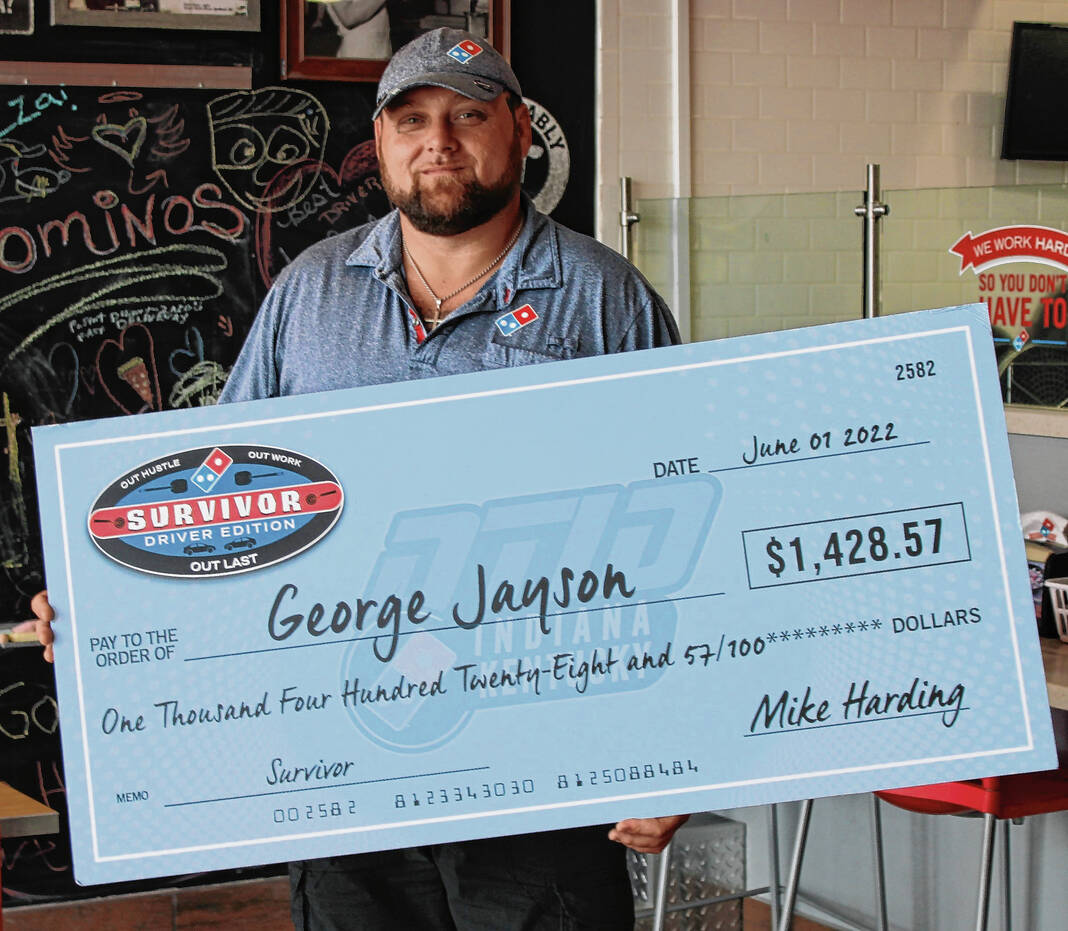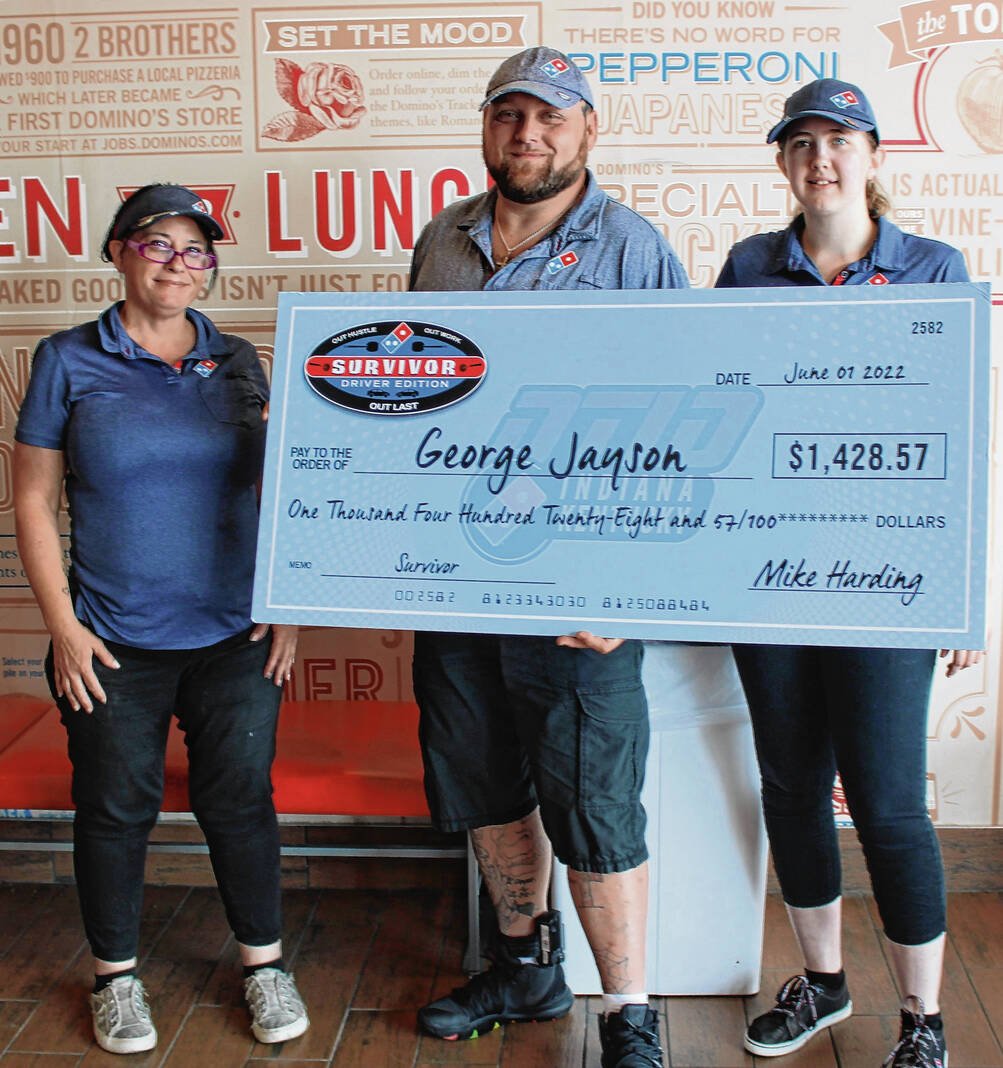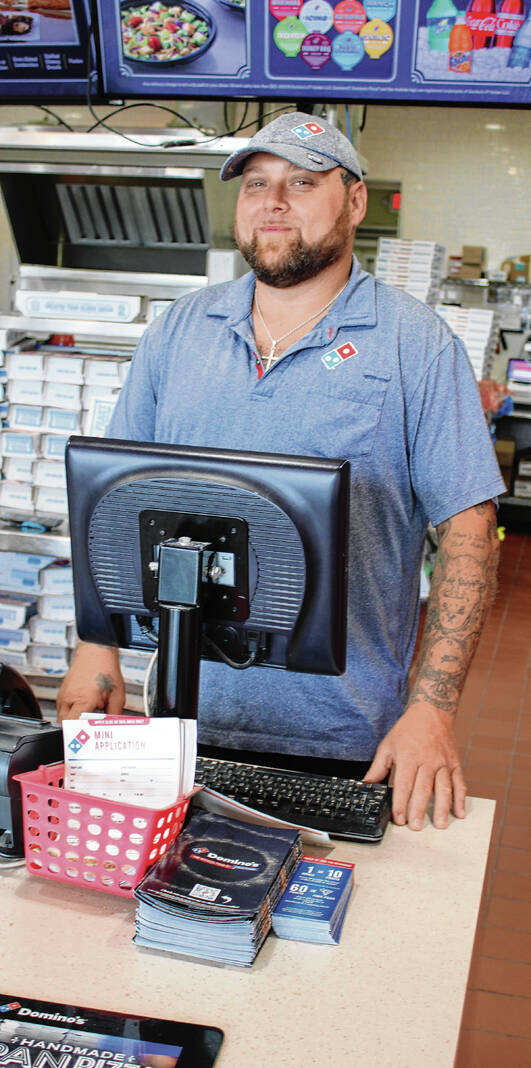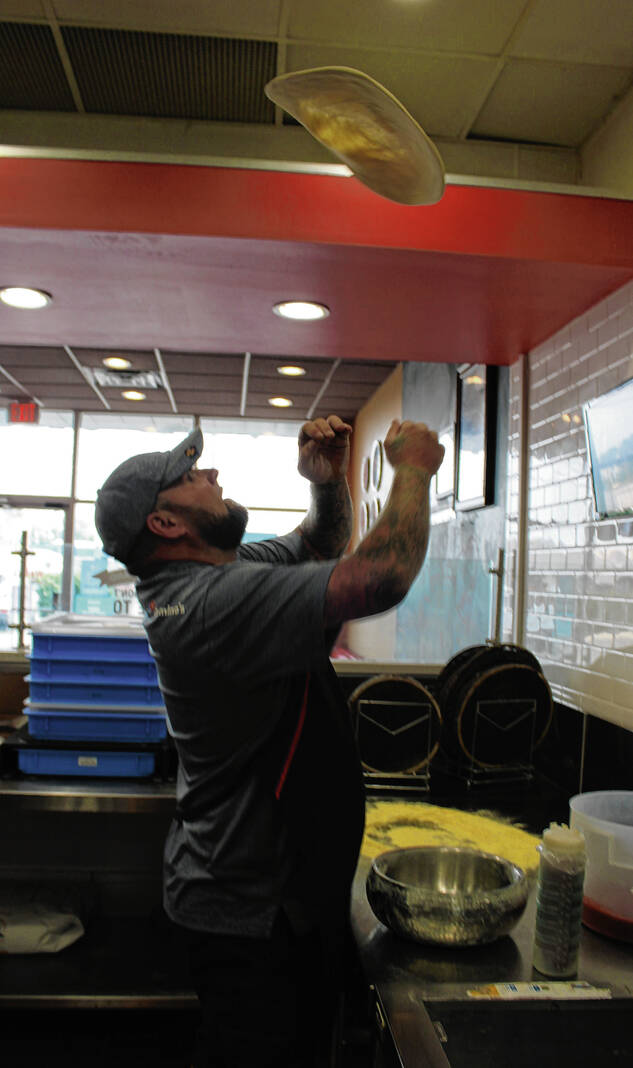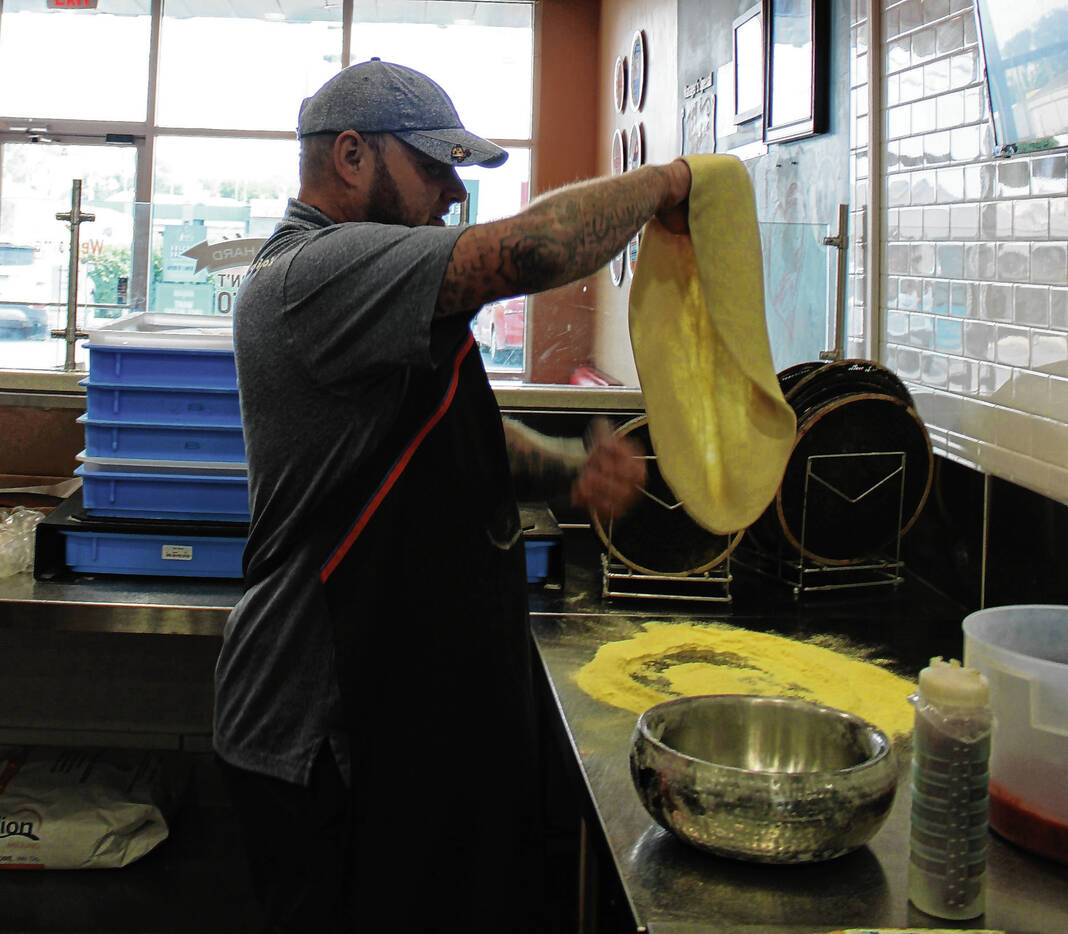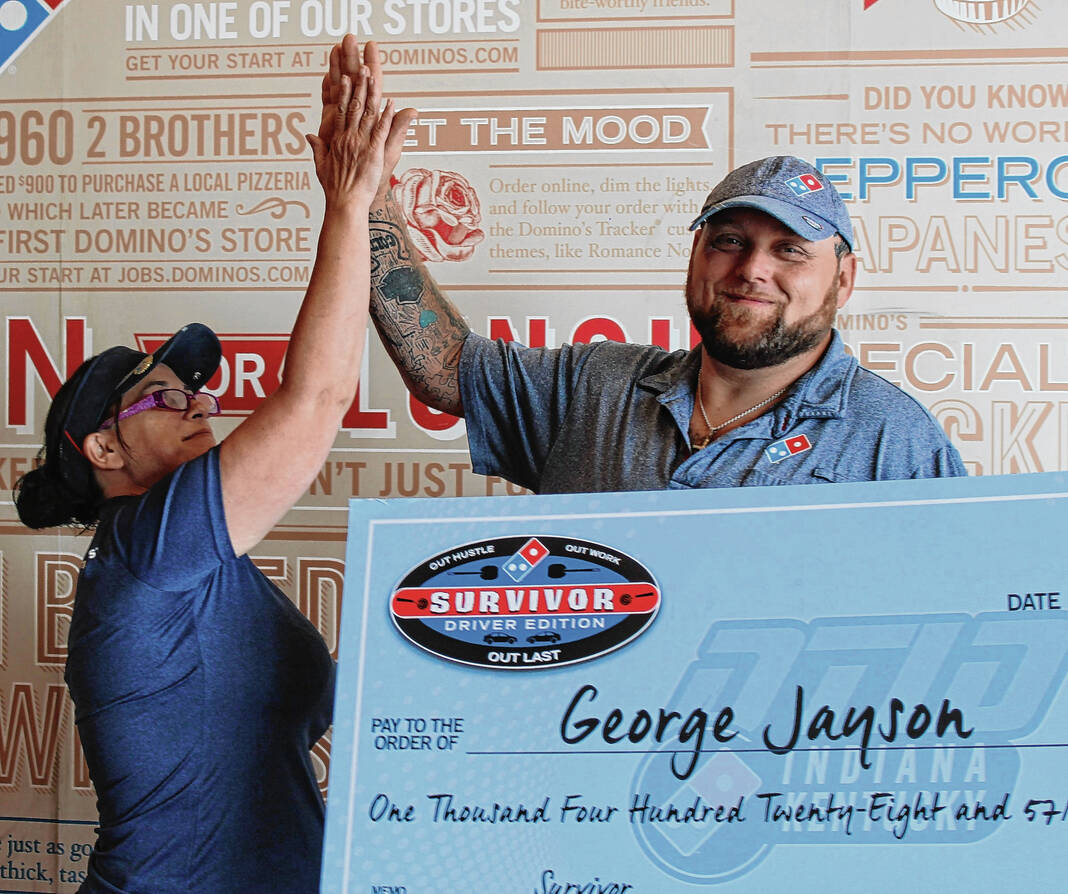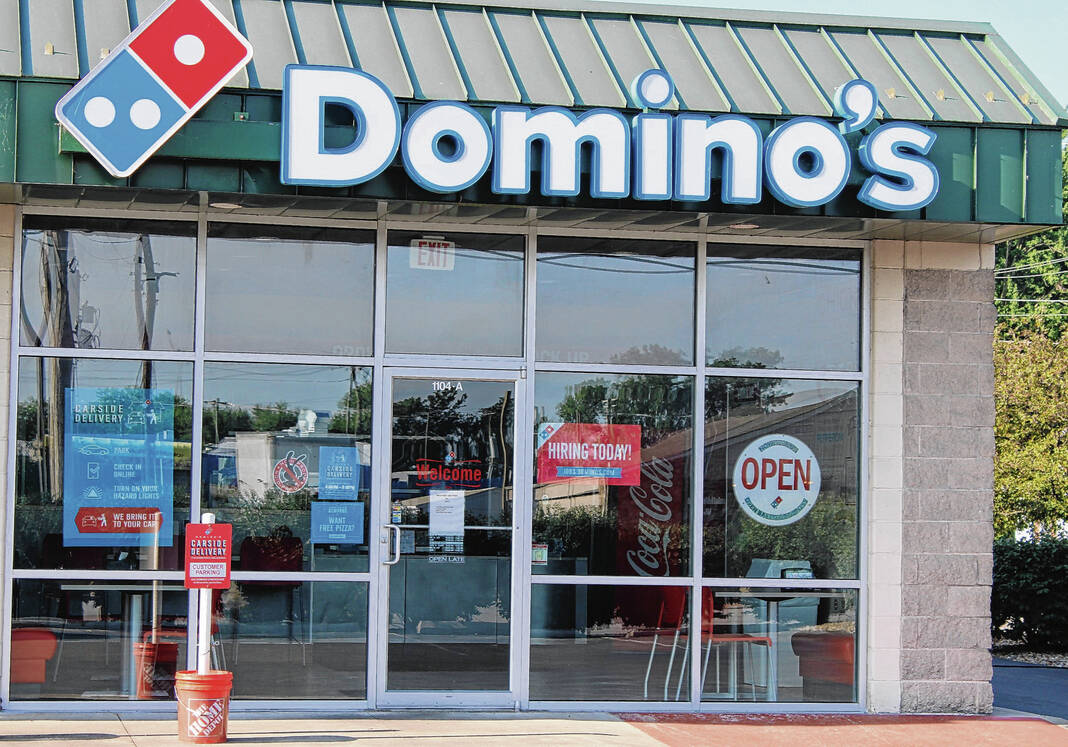The redemption of Jayson George, like many of the pizzas he delivers for Seymour’s Domino’s Pizza, comes with everything on it.
Employment, a vehicle, an apartment. Also, recognition, a shoe collection that would not make Imelda Marcos jealous but at least allows him to step out anywhere. And most importantly, a heavy dose of self-esteem that stems from, if not conquering, his drug addiction since doctors say addiction can always haunt, but beating it down and body slamming it like a wrestling pin.
The cliché is old and worn: “Life begins at 40.” But for George, who is a year removed from serving five years-plus in prison for drug violations, the aphorism is accurate, even if he is 45. His previous home was Branchville Correctional Facility. Now, he lives in Brownstown.
Who knew pepperoni could be more alluring than methamphetamines? Being an ex-con seeking employment is a different type of challenge than being a drug addict. George filled out more paperwork in applications than if he had been applying for a national security clearance. At first, nada, no interest from those hiring.
He was up front at rental properties that seemed to have vacancies, too, and the landlords didn’t want him.
“Nobody would rent to me,” George said. “I messed up a lot in my life. I’ve been a drug addict since I was 17.”
One day, George was driving down Tipton Street and saw a help wanted sign in the window at Domino’s Pizza, 1104 E. Tipton St. He applied and was hired the same day. He has made himself indispensable to the franchise with his devotion, putting in long hours and even winning a company award in a perseverance contest.
“They gave me a chance here to be me,” George said in a recent interview at his workplace. “It’s my purpose that I’ve been looking for for a long time.”
Early problems
George grew up in Columbus, raised mostly by grandparents, and said he became a drug addict by 17 through marijuana and meth use.
“I just went wild,” George said of his younger behavior.
He would get arrested, serve time in prison, be released, plan to straighten his life out but not follow through and go back to prison. At times, he said he mistreated his mother and grandparents.
“I lied to them. I stole from them,” he said.
Last year, he finished a third prison sentence that began in 2016 revolving around a guilty plea to possession with intent to sell drugs. He had hoped to stay clean, but after an auto accident gave him a huge gash on his left leg, he spent 20 days in an intensive care unit and got hooked on pain medication. That sparked a relapse.
This time in prison, he went through job training programs and rehab programs. Addiction, however, is defined by one dictionary as “a compulsive, chronic, physiological or psychological need for habit-forming substance, behavior or activity,” which means it is not a simple matter for an addict to flip an off switch.
Yet George had reached a point where he despised addiction and started making war on it. When he hears about people addicted to heroin or opioids, he said, “It makes me sick. I pray for those people.”
Change, he said, comes hard.
“You have to want it. It’s a struggle,” he said.
For George, shaking addiction has provided rewards. They may be simple ones taken for granted by others as normalcy. He has a steady job. He has an apartment in a duplex, not a cell. He has a bank account where he pours in savings as an insurance policy against anything that can go wrong.
All of this has energized his mother, Patsy Battin of Columbus, who spent a lifetime worrying about George and now sees a man on the right path after too many detours down dead-end streets.
“Jayson and I are inseparable now. I am so proud of him,” Battin said. “I wanted him to change. I want him to be proud of himself.”
When George came out of prison, she said, “He literally didn’t have more than the clothes on his back.”
Not everyone was willing to hire a big bearded guy 6 feet tall, weighing around 280 pounds and decorated with tattoos, she said.
“Domino’s is the break he needed,” she said.
Jeannie Walsh, general manager of the Seymour store, calls George “my right hand.” She hired George after an impressive interview.
“He seemed different,” Walsh said. “He seemed to be straight and sober. He wanted to work.”
Work George has. At times, he has gone over 70 hours. Basically, George is a delivery man, but whenever there has been a shortage of help, he pitched in making pizzas (he can throw dough), doing anything needed, some days working from before opening until close.
“He’s always here,” said district manager Christina Bowman, who supervises three Domino’s Pizza stores in southern Indiana. “He’s always working. I know if he’s on it (any assignment), it will get done.”
Some months ago, the company sponsored a driver’s incentive “survival” contest, putting up $10,000 in prize money to the one who worked the most combined days and hours and delivering the most pizzas over a 60-day period.
Some 30 drivers in Indiana and Kentucky entered, and when the time block concluded, there were still 18 drivers in the hunt. The period was extended to 90 days.
In the end, seven drivers, including George, remained, and they split the pot. George received $1,428.57. That came from being all in.
“He’s awesome,” Walsh said. “He pays attention to everything. He goes up and beyond.”
George is so appreciated by his supervisors they ask why he hasn’t aspired to move into management. Whoa. For someone who has endured rough patches and problems for years, done prison time and battled drug problems, George doesn’t want to rush things.
“Maybe later,” George said. “I’m focusing on balancing a stable life and my sobriety.”
George did take an intensive, lengthy culinary course while in prison and said he might like to open his own restaurant one day.
George feels healthier than in years, and while saying he never knew his father while growing up, the two have now connected. That has led to working at times in a Columbus tire store or in construction.
As an indulgence, though prudent spending is involved through online purchasing, George has acquired a dozen pairs of shoes, one a month, since his release from prison. There is symbolism in this interest. He remembers being impoverished enough he once had to wear shoes duct taped together.
“I like my Jordans,” George said, chuckling, remarking on a pair of Air Jordan-Michael Jordan athletic shoes he bought secondhand.
Though it was one of the perks of hard work, George has a bigger treat in mind. When the bank account is flush enough, he will buy a Harley-Davidson motorcycle.
Seeking to be an example
Hard times seemed to follow George forever, but now, they seem to be in the rear-view mirror, and he wants to share what he has learned about addiction, telling others not to be like he was.
He tells his own story of rehab and recovery, of mistakes committed and good choices made and hopes he is heard and can help others to avoid missteps.
“I try to pass the word when I go to the meetings,” George said. “In texting and on Facebook, I try to encourage everybody. I want to speak to troubled kids and send a message to them early. I would like to see my story help people, to give them an incentive. I don’t want to be that person anymore.”
The person he was, ruled by addiction.
“I want to be a positive peer to help people,” George said.
He is grateful to Domino’s for believing in him, and he is indebted to the company. It is often said addiction to drugs or alcohol leads to one of three sad outcomes — death, hospitalization or institutionalization.
George, a fully employed recovering addict, wants the world to know there is “a fourth way.”
His later-in-life but not-too-late way.

